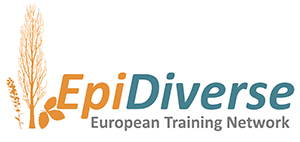I am a plant biologist at the University of Sheffield (UoS). My lab studies how plants use their immune system to interact with other organisms, including microbes, pests and other plants. Apart from my laboratory’s long-standing interests in the molecular perception of chemicals that prime plant immunity, we study the epigenetic mechanisms by which plants maintain long-lasting induced resistance against pests and diseases. My lab also studies the functional relationship between root exudation chemistry and root-associated microbial communities to understand how these interactions help the plant to adapt to (a)biotic stress. In addition to these lines of research, I am co-director of the P3 centre for Plant and Soil Biology, which is part of wider Sustainable Food Institute at UoS. In this role, I work closely with social scientists and agricultural stakeholders to facilitate the translation of our fundamental research into sustainable crop protection solutions.
Jurriaan Ton
Professor of Plant Environmental Signalling
Co-director of the P3 centre of Plant & Soil Biology
Faculty of Science, School of Biosciences,
University of Sheffield, UK
https://tonlab.wordpress.com/
https://www.sheffield.ac.uk/sustainable-food
Tel: +44 114 222 008; email: j.ton@sheffield.ac.uk
Abstract
The epigenetic drivers of plant immune memory.
Sam Wilkinson, Adam Parker, Leonardo Furci and Jurriaan Ton.
Short-term immune reactions in plants often lead to long-lasting induced resistance (IR), which is based on priming of inducible defences. We study the epigenetic basis of this immune memory, which stems from our earlier finding that diseased Arabidopsis produce progeny that are primed to resist biotrophic pathogens. This transgenerational IR is reversed in the absence of stress and requires ROS1-dependent DNA demethylation of transposable elements (TEs). Monitoring changes in DNA methylome from parent to F1 embryos and F1 plants revealed loss of DNA methylation at TEs/repeat sequences at non-CG context. Using artificial epigenetic recombinant inbred lines (epiRILs) of Arabidopsis, we furthermore found that DNA hypomethylation of TE-rich pericentromeric regions primes global defence genes against biotrophic pathogens. Current research also focuses on long-term IR against herbivores within one generation. Treatment of seedlings with the defence hormone jasmonic acid (JA) induces long-term IR against caterpillars, which is maintained for several weeks. Transcriptome analysis demonstrated that this long-term JA-IR is associated with priming and/or up-regulation of MYC2/3/4-dependent defence genes. In contrast to short-term JA-IR, this long-term JA-IR requires the DNA demethylase ROS1 and the sRNA-binding protein AGO1. Although DNA methylome sequencing failed to identify consistent changes in DNA methylation near MYC2/3/4-controlled defence genes, plants from JA-treated seedlings were specifically enriched with hypo-methylated TEs from the AtREP2 family. Analysis of JA-inducible AGO1-associated sRNAs revealed enrichment with AtREP2-derived sRNAs, suggesting that hypo-methylated AtREP2 TEs prime MYC2/3/4-dependent defences via AGO1-associated sRNAs. Our research indicates that trans-regulatory responses to TE hypomethylation control long-term immune memory in plants.





